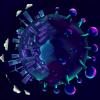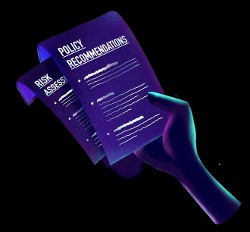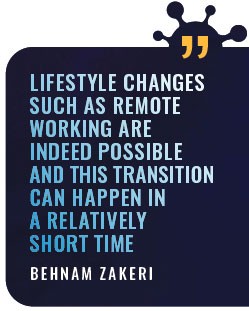
Options Winter 2020: Systems science is ideally positioned to address global impacts and harness opportunities brought about by the COVID-19 pandemic. IIASA is actively involved in addressing emerging issues and supporting policymakers on the road to a more sustainable post-COVID world.
COVID-19 has truly proven to be a systemic crisis. Since the corona virus emerged in China at the end of 2019 and spread rapidly across the globe, it has impacted every aspect of our lives. The cascading impacts of the pandemic have however been far from equal, with different impacts experienced by men and women, and vulnerable populations in both developing and developed countries suffering more adverse impacts than their more well off counterparts.
Throughout the crisis, people have looked to science to understand the challenges and opportunities of the COVID-19 pandemic and to identify possible and effective response strategies.
IIASA researchers have been hard at work to provide scientific insights, holistic solutions, and actionable advice to policymakers to build back better after the crisis and to ensure that no one is left behind as we work towards a more equitable, resilient, and sustainable post-COVID world.
LIFE IN LOCKDOWN
Almost all countries reacted to the rapid rise in COVID-infections by employing measures to contain or delay the spread of the virus. While scenes of empty city squares and deserted streets became commonplace, concern over the economic consequences of drastic lockdown measures soon became the subject of criticism in both political and public debate. This prompted IIASA researcher Tamás Krisztin and colleagues to look into the effectiveness of lockdown measures and to examine how COVID-19 spreads regionally and between countries.
“Our results show that cross-country transmission processes, specifically via international flight connections, played a particularly important role in the early stages of the virus’ spread. It appears that governments, who took early action to reduce crossborder air passenger traffic, did in fact do the right thing to prevent the spread of infection. The policies introduced seem to have played a particular role in reducing COVID-19 cases, flattening the curve, relieving stress on the healthcare system and, ultimately, saving lives,” Krisztin explains.
Despite the strict measures put in place all over the world, loss of life has been a substantial part of the pandemic. To show the potential cost of human lives lost, IIASA researchers also looked into the potential effects of mortality associated with COVID-19 on life expectancy.
The results indicate that at 10% prevalence, the loss in period life expectancy is likely to be more than one year in high life-expectancy countries, while at 50% it would translate into three to nine years of life lost in such regions. While life expectancy cannot directly be used as an indicator to evaluate governments’ response to the pandemic as mortality from the first wave of infections depends on several other factors beyond government responses alone, the researchers note that it does give an indication of whether prevention measures are worth maintaining or not.
While the decline in life expectancy will be short-term and will likely return to previous levels once the pandemic is over, the indicator provides quantifiable information to policymakers regarding the human cost of the COVID-19 pandemic.
“The scenarios we explored can give policy-relevant information on what could potentially happen to period life expectancy under different levels of prevalence, which vary with public health strategies to reduce and prevent the spread of COVID-19. If the virus spreads widely in the population, for instance, in the absence of any lockdowns and physical distancing measures, this could result in a notable short-term decline in period life expectancy in many regions of the world,” explains Deputy World Population Program Director, Raya Muttarak.
IIASA researchers and colleagues also examined the age and gender dimensions of COVID-infections and found that confirmed COVID-19 cases are highly gendered. Especially when looking at the age pattern of infection, rates of confirmed cases among younger women were higher than for men in several European countries. Interestingly, in countries where greater gender imbalances exist and women tend to take on more duties around the home, this trend was reversed and confirmed cases were much higher among men. Muttarak points out that this reiterates the impact that gender roles can have, as well as the importance of safety measures to reduce exposure to infection for both men and women.
PATHWAYS TO A MORE SUSTAINABLE POST-COVID WORLD
To address emerging issues and provide science based insights to policymakers, IIASA and the International Science Council (ISC) brought together experts from all over the world through a consultative science platform that draws on the combined strengths and extensive scientific communities of the two organizations. Consultations were structured around four broad themes: Governance for Sustainability, Strengthening Science Systems, Resilient Food Systems, and Sustainable Energy.
ENHANCING RISK GOVERNANCE IN AN INCREASINGLY RISKY WORLD
 © Adam Islaam | IIASA
© Adam Islaam | IIASA
COVID-19 has shown just how intertwined human and natural systems are and how a local threat can exponentially explode into a global crisis – a situation that is reinforced by unequal and unsustainable developments under current socioeconomic trends. In addition, the crisis has revealed that systemic risk is currently not well governed, if at all. The IIASA-ISC consultations around Governance for Sustainability highlighted that to realize sustainable development, it is imperative to reduce risk, build resilience, and secure long-term development gains. Participants emphasized that current governance arrangements are inadequate to protect global and local commons, stimulate the transformation of the human systems we need, and address the complex and systemic risks facing a world that will see more and more shocks and stressors – both sequentially and in parallel.
“Global institutions built in the 20th century to prevent armed conflicts and manage the flow of goods and services are not adequate to address 21st century multi-scale socioecological challenges and rising inequalities,” says Anne-Sophie Stevance from the ISC, who co-leads the Governance for Sustainability theme.
According to IIASA researcher and theme co-lead Teresa M. Deubelli, as a next step, it appears key to use the lessons from COVID-19 to inform governance reforms with a view to boosting agility and adaptivity, including through enhanced science-policy interfaces, upscaled innovation and foresight, along with updated crisis provisions and more participatory decision-making.
IIASA researcher and theme co-lead Reinhard Mechler adds that COVID-19 illustrates the need for governments to take a more risk-informed, forward-looking approach to counteract risk creation associated with degradation in global (climate) as well as local commons, such as the destruction of ecosystems that enhance the spread of zoonotic diseases.
 © Adam Islaam | IIASA
© Adam Islaam | IIASA
STRONGER SCIENCE SYSTEMS
Perceptions around how science has responded to the COVID-crisis may vary, but there is broad consensus that there is room for improvement in science systems to better serve the public interest, especially in times of crises. As part of the series of IIASA-ISC discussions around Strengthening Science Systems, participating experts suggested five interconnected transformative changes to strengthen the science system so that it is better prepared to deal with future crises and to provide input to policy.
The most critical of these would be to strengthen transdisciplinary research on multiple critical risks and system resilience. Secondly, we would need to radically increase the diffusion of scientific knowledge, both within the science system and between science and society. This implies that researchers should be able to share their findings globally with other scientists and decision makers a lot quicker and more widely than is currently the case, while being watchful of not compromising on the quality of the research. Thirdly, the capability of the science system to reorient itself in an agile way in response to emerging societal needs would need to be improved. In other words, scientists should be able to put projects on hold, in order to refocus their research efforts where they are needed most.
The last two areas that should be targeted for transformative change are enhancing public understanding of and trust in science, and improved efficiency of science-policy interface mechanisms. “COVID-19 revealed quite strongly that even in developed countries where scientific literacy is quite high, there is a lack of basic understanding of how science works, specifically around the role of scientific debate and scientific disagreement. The media could play an important role in supporting efforts in this regard,” explains Elena Rovenskaya, co-leader of the IIASA-ISC Strengthening Science Systems theme.
“In terms of achieving improved efficiency in science-policy interface mechanisms, we discussed options such as getting scientists more directly involved in government decisionmaking processes or to enhance the transparency of science advice to policy and to require that governments give full consideration to the science advice provided.”
Rovenskaya points out that all five aspects are closely related and intertwined and, difficult as it may be, should all be addressed at the same time.
GUARDING AGAINST HUNGER
The food system consists of highly interconnected social, technical, financial, economic, and environmental subsystems. The impact of COVID-19 quickly filtered through the entire system, threatening to double the number of people exposed to acute hunger and highlighting how insufficient safety nets designed to protect the most vulnerable were in many parts of the world.
 © IIASA
© IIASA
Experts deliberating on the IIASA-ISC Resilient Food Systems theme point out that to ensure a more resilient and equitable global food system, we need to rethink current agricultural practices and implement multiobjective systems that better link social, economic, technological, and environmental systems to improve overall resilience and adaptability. In addition, continuous support needs to be provided to developing countries to strengthen innovation capacities, enable adoption of technologies, and advance the upscaling of sustainable land management practices that are suited to their respective sociocultural, economic, and environmental contexts. At the same time, we should be conscious of the fact that we cannot just prepare for one risk, we need to be prepared for multiple simultaneous risks in the future. Floods in one area and droughts in another that severely impact multiple food producing areas simultaneously, would for instance pose a massive risk to global food security.
“For the long term, the challenge is not only how we respond to the vulnerabilities that have been revealed by the pandemic. We need to realize that we now live in a world where everything is connected; where we are confronted with dynamic problems that play out in a non-linear fashion, and where rapid action is key.
Policymakers have to be more prepared for the collective challenges and compounding risks we face in these uncertain times,” says co-leader of the Resilient Food Systems theme, Frank Sperling.
IIASA researcher, Franziska Gaupp, who has been studying the challenges of a globally interconnected, complex food system and impacts that might affect several of the world’s food producing areas simultaneously, agrees: “There will likely be more shocks hitting our global food system in the future.
We need global collaboration and transdisciplinary approaches to ensure that the food chains function even in moments of crises to prevent price spikes and to provide all people with safe access to food,” she says.
RE-IMAGINING ENERGY CONSUMPTION
The COVID-19 crisis and the associated lockdown measures have drastically impacted energy consumption. While increased household electricity consumption costs combined with lower income made it difficult for some, and especially people in poor and developing countries, to provide for their families; demand for fuel and energy was significantly reduced in the industry and transportation sectors. In many cities, people adopted lifestyle and behavioral changes that would have seemed difficult before, like the increased use of bicycles for transport and virtual platforms for doing business, and attending meetings and conferences. Many countries have also advanced in terms of digitalization and the use of online services in education and governance.
Participants of the IIASA-ISC Sustainable Energy theme discussed bold measures for building more resilient societies and explored strategies for just and sustainable recovery pathways from COVID-19. Three areas were identified for immediate action, namely significantly reducing energy demand through measures like remote working, digitalization, and the reshaping of urban spaces and their use; maximizing sustainable energy independence at local and individual levels through, for instance, decentralized renewable energy solutions and efficiency enhancing measures; and influencing behavior towards responsible consumption such as encouraging new trends in mobility, less material consumption, and
sharing vs. ownership models.
Participants highlighted that the pandemic demonstrated the possibility of transformation with positive effects for climate, pollution, and health and that this should form the basis for arguing for a profound transformation of the global energy system that also benefits those impacted more severely. Designing and implementing such measures will however require a careful interplay between science, technology and innovation, governance, policy, and business.
 © IIASA
© IIASA
“Some fear that the positive changes we have been observing will only last until the pandemic is over and we return to “business-as-usual”. During the pandemic we however saw that lifestyle changes such as remote working and the increased use of online services are indeed possible and that this transition can happen in a relatively short time,” says IIASA researcher and IIASA-ISC Sustainable Energy theme co-leader Behnam Zakeri. “We have learned a lot from how people and governments reacted to COVID-19, for instance, relying on science-based advice and taking decisive action to tackle the crisis. This gives me hope that we might be able to trigger similar responses to other global crises like climate change.”
One positive “side effect” of the abrupt shifts in human behavior in response to the pandemic has been an encouraging 10-30% reduction in carbon dioxide (CO2), nitrogen oxides (NOx), and other emissions mainly due to the reduction in global travel. IIASA researcher Joeri Rogelj contributed to a study in which researchers explored whether the reduction in greenhouse gas emissions could have long-term effects on our ability to address global warming. According to Rogelj, the results are both sobering and hopeful.
"The flash crash in global emissions due to lockdown measures will have no measurable impact on global temperatures by 2030; but the decisions we make this year about how to recover from this crisis can put us on a solid track to meet the Paris Agreement. Out of this tragedy comes an opportunity, but unless it is seized, a more polluting next decade is not excluded," he concludes.
By Ansa Heyl






